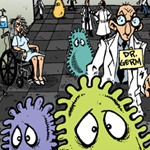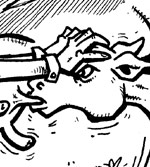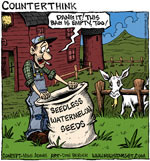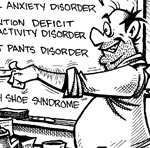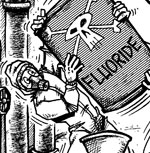The Treatment That Helps You Get the Sleep You Need Depends on the Type of Insomnia You Have
| Share on Facebook | Share on Twitter | Share on Google+ |
Medical books often describe sleeplessness either "primary" or secondary insomnia, depending on whether the lack of sleep has an identifiable, medical cause. For you to find the right approach to dealing with insomnia, however, further distinctions are necessary. Here is a quick summary of the major types of insomnia.
Transient insomnia lasts a week or less. It is often caused by anxiety or a sleep adjustment disorder, for example the loss of a loved one, the loss of a job, severe weather, or having to stay up to study for exams. Transient insomnia can also result from caffeine abuse or jet lag. Short-term sleep difficulties are especially amenable to treatment with sleeping pills because of the low risk of dependency. When a medication is taken so long that dependency results, rebound insomnia, that is resistant to medication, can result.
Acute insomnia, which lasts more than a week but less than month, is also amenable to treatment with medications that do not cause dependency, such as the hypnotics or melatonin. Nutritional treatment with magnesium, especially when insomnia is related to premenstrual disorders or menopause in women, and homeopathic remedies, tied to the user's uniquely personal set of symptoms, are also likely to help.
Chronic insomnia lasts at least a month. Some kinds of chronic insomnia go on for years or even a lifetime. Chronic insomnia in children includes primary insomnia, nightmares, and night terrors. Chronic insomnia in adults includes psychophysiological insomnia, a condition in which worries about insomnia perpetuate it, and paradoxical insomnia, in which people appear to be sleeping soundly but are actually suffering sleep apnea without the characteristic snoring.
Hypothyroidism is the underlying cause of millions of cases of insomnia in adults around the world. Also striking adults are familial fatal insomnia and sporadic fatal insomnia, variations of terminal insomnia which fortunately strike fewer than 1 in 50,000,000 people worldwide. Hypersomnia, of course, is not a kind of insomnia at all, but rather a condition of feeling sleepy all or nearly all of the time.
The right medication for insomnia depends on the time of night the sufferer encounters difficulty falling asleep (sleep onset insomnia) or staying asleep (sleep maintenance insomnia). Almost no medications are effective for middle of the night insomnia, because of the tendency to cause drowsiness for six to eight hours after taking the pill.
Not all treatments for insomnia, however, are pharmaceutical. Some of the true insomnia cures are things you can do for yourself, changing your lifestyle or your sleeping style to overcome insomnia for good.
Insomnia Related Articles
Sleeping Remedies - You don't have to resort to over-the-counter or prescription drugs for your sleeping disorder. You can stick with natural sleeping remedies.
What Causes Insomnia - What causes insomnia? There are a lot of them. If you don't like to suffer from this sleeping disorder, you may want to avoid the reasons as much as possible.
Melatonin and Insomnia - Does melatonin help to treat insomnia?
Anxiety and Insomnia - What is the relationship between anxiety and insomnia?
Sporadic Fatal Insomnia - What is sporadic fatal insomnia?
Terminal Insomnia - What is terminal insomnia?
Transient Insomnia - What are the causes of short-term insomnia?
Non Prescription Sleep Aids - Non prescription sleep aids are those that you can buy over the counter or without the advice of your physician. They may be OTC drugs or natural sleeping pills.
Types of Sleeping Disorders - There are different types of sleeping disorders. When you are aware of what they are, it becomes easier for you to find the most ideal solution to the problem.
Insomnia Medicines - Insomnia medicines may really put someone to sleep, but they do have more serious side effects.
Insomnia Solutions - There are a lot of insomnia solutions that are available these days. Nevertheless, not all of them could be ideal for you.
Tips for Insomnia - Discover the different tips for insomnia. Hopefully, when you follow all the guidelines, you will be able to sleep early and soundly at night.
Herbs for Insomnia - Herbs for insomnia provides you great alternatives for powerful but dangerous over-the-counter sleeping pills such as Valium.
Insomnia Symptoms - What are the signs and symptoms of insomnia?
Causes of Insomnia - What causes insomnia in people?
Fatal Familial Insomnia - What are the symptoms, causes and treatment options for fatal familial insomnia?
Hypothyroidism and Insomnia - Can hypothyroid cause insomnia?
Idiopathic Insomnia - What is idiopathic insomnia disorder?
Insomnia During Pregnancy - Causes and cures for insomnia while pregnant.
Insomnia in Children - What are the causes of insomnia in children, and how to treat it.
Insomnia Medications - Insomnia medications list and what you need to know.
Menopause and Insomnia - Does menopause causes insomnia?
Middle of the Night Insomnia - What to do to treat sleep maintenance insomnia.
Primary Insomnia - What is primary insomnia?
Psychophysiological Insomnia - What is psychophysiological insomnia?
Sleep Onset Insomnia - What is sleep onset insomnia?
Natural Sleeping Pills - Natural sleeping pills are the way to go, if you don't want to suffer the usual risks or complications of over-the-counter and prescription drugs.
Insomnia Cures - Five natural cures for Insomnia.
Sleeping Disorder Symptoms - By being aware of the sleeping disorder symptoms, it becomes easier for you to determine the disorder you're having and the right cure to it.
Homeopathic Remedies for Insomnia - How to choose the right Homeopathic Remedies for Insomnia?
What is Insomnia - What does insomnia mean? What are the symptoms of insomnia?
Paradoxical Insomnia - All about Sleep State Misperception.
Natural Remedies for Sleep - Natural remedies will definitely be helpful especially if you know how to use them properly.
-
Skin CareMen Skin Care
-
Free ResourcesFree eBooks
-
Every human being is the author of his own health or disease.Buddha
-
Featured Health Supplement
 If you find a product that is as effective as Total Balance, and is better value for money, let us know and we will give you a refund equivalent to your entire purchases of Total Balance…retrospective.
If you find a product that is as effective as Total Balance, and is better value for money, let us know and we will give you a refund equivalent to your entire purchases of Total Balance…retrospective.
-
